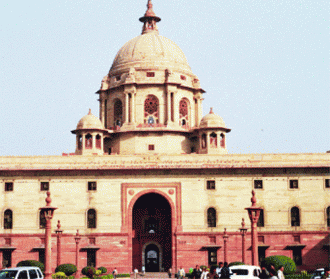
India’s firm response to outside nations seeking to interfere in the country’s internal matters or bilateral relations is a signal that should be picked up by the relevant parties who wish to maintain and sustain cordial relations with New Delhi. The Government of India has reacted strongly, and rightly so, to China’s objection to the Dalai Lama’s ongoing visit to Arunachal Pradesh, advising Beijing to not create “artificial controversies”; and told the United States in no uncertain terms that the issue of Kashmir is between India and Pakistan to settle, and needs no outside mediation. These twin messages to countries, incidentally pitched against each other on various issues, demonstrates the Union Government’s resolve to stand firm on international diplomacy.
US envoy to the United Nations, Nikki Haley’s remark that the Trump Administration could proactively mediate — “We don’t think we should wait till something happens” — can be put down to her and her Government’s inexperience and over-zealousness on the issue. And yet, neither she nor President Donald Trump can be unaware of history. India and Pakistan have the Shimla pact which binds the two nations to resolve the Kashmir matter bilaterally and peacefully. Attempts had been made in the past by the US to wade into the controversy. Early on, after he assumed charge as President, Barack Obama had tried something similar to what Haley has suggested, but he quickly pulled back after New Delhi objected strongly. From there on, the Obama Administration steadfastly reiterated the bilateral character of the issue and, despite Pakistan’s prodding on many occasions, refused to intervene. Perhaps the Trump regime too will understand sooner than later. And, if it is so keen to prevent conflicts in the region, it should be actively tackling Islamabad which continues to back terrorism in India. The Trump Administration should also pay more attention to Pakistani atrocities in Balochistan.
On the other hand, China’s response to the Dalai Lama’s visit to Arunachal Pradesh, is along expected lines. It is India’s counter that is refreshingly bold. On previous occasions, the Indian Government usually relented to Beijing’s arm-twisting on such matters, seeking to avoid conflict with its powerful neighbour and advising the Dalai Lama be restrained in his movements. However, the Modi Government not only allowed the Buddhist spiritual leader to travel to Arunachal Pradesh — parts of which China claims as its territory or at least disputed in nature — but also accorded him an official welcome. Beijing had in the run-up to the ongoing visit, ‘warned’ India on many occasions against ‘complicating’ relations, but was rebuffed each time. The Dalai Lama’s visit is not the only indicator of New Delhi’s new resolve; the ramping up of infrastructure such roads, rail and airports in the North-East too has rattled China. If India recognises the One China policy, so should Beijing acknowledge the One India policy.
Courtesy: The Pioneer














